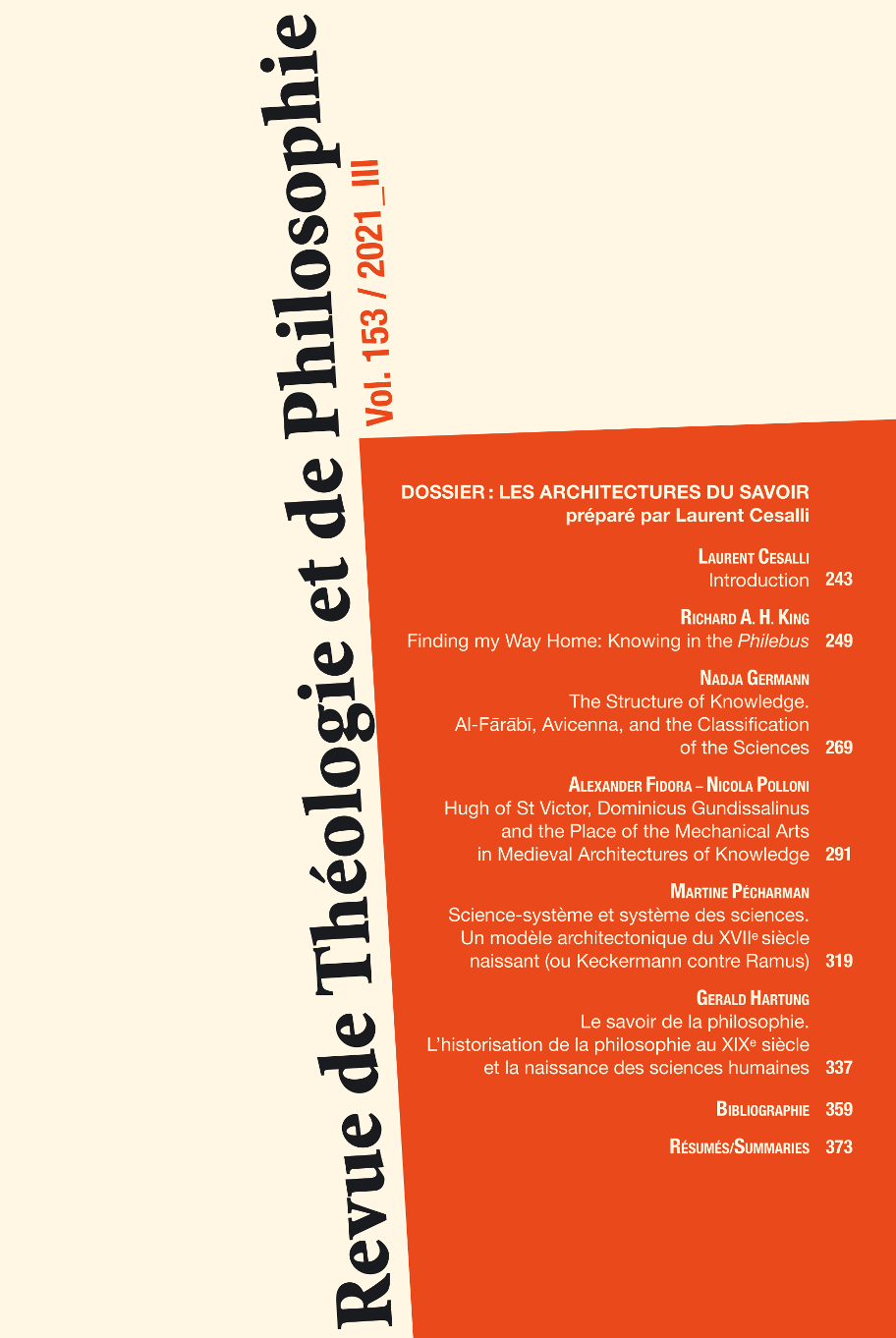The structure of knowledge
Al-Fārābī, Avicenna, and the Classification of the Sciences
Abstract
Medieval architectures of knowledge designed in the Islamic world constitute a special case: They neatly reflect the competition between different intellectual traditions and approaches. On the one hand, there are those classifications that are centered on what was perceived as the indigenous sciences during the formative period, i.e. those sciences that arose in connection with the new religion, Islam, and the language of its revelation, Arabic. On the other hand, scholars eagerly took over and adapted disciplines deriving from non-Arab and non-Muslim cultures, primarily Greek science and philosophy. These traditions, however, transmitted their own conceptions of knowledge that partly stood in conflict with Arabic-Islamic ideas. In this article, I first give an overview of the various approaches and then concentrate on Fārābī and Avicenna, in order to trace a remarkable development: the gradual dissolution of boundaries both within and between the different scientific spheres and paradigms on epistemological grounds.
How to Cite
More Citation Formats
